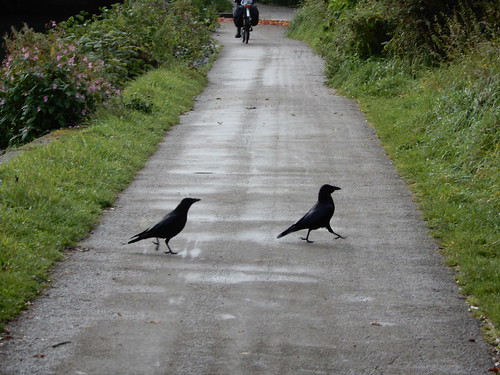I've been re-reading the screenplay of a film I was very fond of, The Falls by Peter Greenaway. This is a surrealist experimental series of 92 short films about a "violent unknown event" (VUE) which was possibly the fault of birds (but perhaps not) and provoked a medical catastrophe for a subsection of humans who found themselves medically, emotionally, physically and linguistically changed by an event they could not understand.
Here's the trailer:
THE FALLS (Peter Greenaway, 1980) from Spectacle on Vimeo.
I was thinking about it in relation to two things, the first being The Big Garden Birdwatch and the second being the RHS calling on people to record weeds. In The Falls, naturalism is viewed with suspicion, the counters and the recorders and the observers interrogated for their intentions, with parallel drawn to hunting, and the cruelty of nursery rhymes, where birds die, repeatedly, fall, inevitably, stanza upon verse upon repetition upon rhyme.
One of the touchstone phrases in the The Falls is: a count is as good as a kill. This runs both ways; it is as good for the person (the twitcher, the birdspotter) to check the bird off the list, as to shoot it. But also the act of counting is often one of disturbance and distress: mist-nets, rings, the adrenaline rollercoaster of capture and release, and the invasion of your territory and space by giant carnivorous apes might not kill you, but it's not great for you either. It's a stressor. It really is.
And also for plants of course. Observation, handling, noticing, spotting. None of these actions are possible without changing what is observed. The act of study changes what it observes, and that change can easily include damage. But it's still better for the plant than yanking it up, pulling it out, burning it and destroying its seeds. A count is as good as a kill for the human doing the counting.
But for the thing being counted, it's definitely the better option.

No comments:
Post a Comment